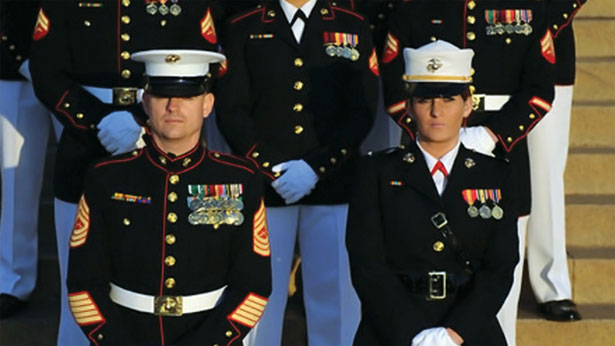
Marine Ariana Klay, who brought a lawsuit against the US Military after she was raped. (The Invisible War).
On August 15, Defense Secretary Chuck Hagel announced an array of new initiatives intended to combat sexual assault in the military. While victim advocates welcomed the reforms, they stressed that they fail to fully address one of their key complaints: that the current system of prosecuting sexual assault within the chain of command leaves victims fearful of retaliation and reluctant to report crimes.
In a memo to staff, the defense secretary directed each branch of the military to create a legal advocacy program for victims, standardized prohibitions on inappropriate relations between recruiters and recruits, ensured that pretrial hearings are conducted by military lawyers and provided commanders with the option to reassign or transfer the accused (previous rules allowed commanders to transfer the victim). The secretary also said that he would meet with a panel tasked with assessing the current systems used to investigate, prosecute and adjudicate crimes.
Protect Our Defenders, an organization dedicated to fighting for justice for victims of sexual assault in the military, applauded the new legal advocacy program in each branch, but stressed that, ultimately, the changes amounted to “small tweaks to a broken system.”
The organization has joined the Service Women’s Action Network in calling for the Military Justice Improvement Act (MJIA), a bill introduced by Senator Kirsten Gillibrand that would remove responsibility for prosecuting sexual assault outside of the military chain of command.
Senator Gillibrand herself said that while the changes were a positive step forward, more was needed. “As we have heard over and over again from the victims and the top military leadership themselves,” she said,” there is a lack of trust in the system that has a chilling effect on reporting. Three-hundred and two prosecutions out of an estimated 26,000 cases just isn’t good enough under any metric.”
Since we launched a campaign earlier this summer, Nation readers have sent nearly 1,000 messages to Congress in support of MJIA. To keep up the pressure, head to our activism page and implore your representatives to fight for real change for victims of sexual assault in the military.


